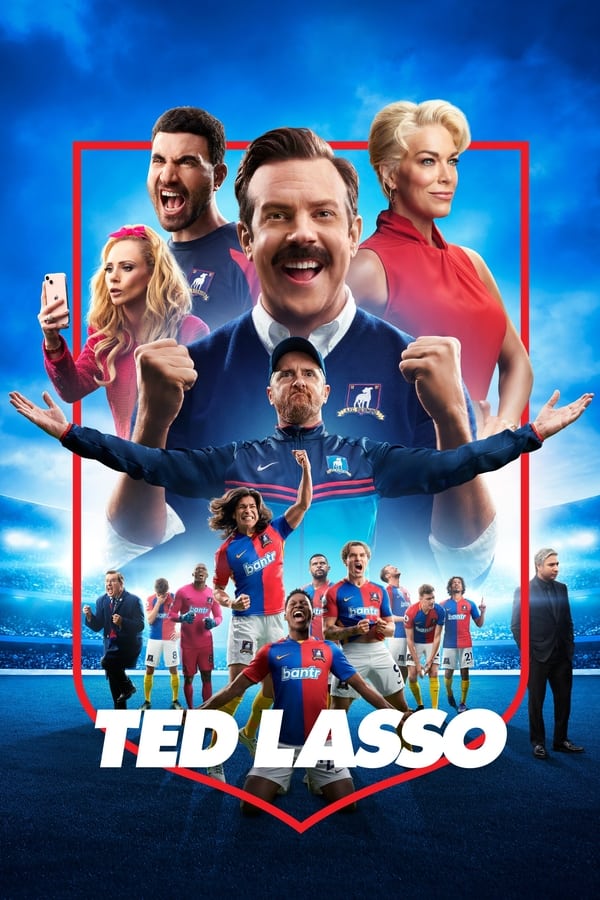Ted Lasso has not only captured the hearts of audiences worldwide with its charm and humor but also played a significant role in raising awareness about mental health. The show's unique approach to storytelling, combined with its heartfelt characters, has opened up conversations about mental health in ways that resonate deeply with viewers. By addressing these issues through the lens of sports and camaraderie, Ted Lasso has managed to destigmatize discussions around mental well-being, making them more accessible and relatable.
One character whose journey particularly highlights this impact is Bill. Through his experiences and growth throughout the series, Bill's story serves as an inspiring example of how acknowledging and confronting personal struggles can lead to positive transformation. His path towards self-discovery and healing offers valuable lessons for anyone navigating their own mental health challenges. Let us delve deeper into what we can learn from Bill's journey in Ted Lasso regarding mental health awareness.
Roy Kent's Impactful Moments in 'Ted Lasso'
Roy Kent, one of the most beloved characters in 'Ted Lasso,' brings both intensity and vulnerability to the screen. Throughout Season 2, Roy's curse-filled rants became legendary moments within the series. These outbursts were not just humorous; they highlighted Roy's internal battles and insecurities. Spoilers ahead for those who haven't watched yet - Roy owes his niece quite a sum due to all his curses during coaching sessions!
Phoebe meticulously tracked each curse word uttered by Roy throughout Season 2. This playful aspect added another layer to Roy's character, showing his gruff exterior masking deeper emotional layers. It wasn't merely about counting swear words; it was about understanding Roy's frustrations and how he copes with them. His interactions, especially with Ted, often revealed underlying tensions and personal struggles.
The culmination of Roy's journey came when he admitted his feelings openly, marking significant progress in dealing with his insecurities. Such scenes underscored the importance of communication and acceptance in overcoming personal hurdles. Roy Kent's evolution demonstrated that even the toughest individuals face vulnerabilities requiring acknowledgment and support.
Exploring Insecurity Through Fiction
Insecure Roy Kent stories have found a place among fan-created works on platforms like Archive Of Our Own. These narratives explore Roy's inner world beyond what's shown onscreen. Fans delve into his thoughts and emotions, creating scenarios where Roy confronts his insecurities head-on. One such story features Roy reacting to being called a 'BILF' (Boss I'd Like to Follow) by expressing curiosity rather than defensiveness.
This fictional exploration allows fans to connect further with Roy's character while examining themes of confidence and self-worth. By imagining alternate outcomes or extended dialogues, writers provide new perspectives on familiar situations. Such creative endeavors enhance our understanding of Roy's complexities and contribute positively to discussions around male mental health.
Through these fan-generated tales, Roy emerges not just as a football legend but as a multifaceted individual grappling with modern-day pressures. This engagement fosters empathy and encourages open dialogue about personal challenges faced by men today.
Enhancing Viewing Experience with Apple TV+
Apple TV+ offers an unparalleled viewing experience for Ted Lasso enthusiasts. With top-notch audiovisual quality featuring Dolby Vision, HDR10+, and Dolby Atmos, watching episodes becomes immersive. The platform ensures seamless integration across various Apple devices, enhancing convenience for subscribers. Beyond technical excellence, Apple TV+ continues delivering compelling content centered around meaningful human connections.
The season finale review praised the brilliance of Inverting The Pyramid Of Success, highlighting essential themes relevant to real-life scenarios. Keeley Jones' portrayal as an independent woman resonated strongly with audiences worldwide. Her characterization exemplified strength amidst adversity, reinforcing messages about resilience and empowerment.
As viewers tuned into subsequent seasons, they witnessed profound character developments, especially concerning relationships between key figures like Roy and Keeley. Episodes tackled tough subjects such as privacy breaches affecting mental health without losing sight of comedy elements that define Ted Lasso's essence. Thus, Apple TV+'s commitment to storytelling remains steadfast, offering impactful narratives wrapped in entertainment.
Roy's Reaction to Keeley's Situation
A pivotal moment in Ted Lasso occurred during Season 3, Episode 8, titled “We’ll Never Have Paris.” Spoilers ahead for those catching up! As Keeley dealt with the distressing aftermath of an intimate video leak, Roy initially responded insensitively. This reaction shocked fans accustomed to seeing him grow emotionally over previous episodes.
However, Roy's misstep served as a crucial reminder that everyone, regardless of perceived strength, possesses flaws needing work. Instead of dismissing his error, the storyline allowed Roy space for reflection and redemption. Viewers observed firsthand how acknowledging mistakes forms part of personal growth, emphasizing accountability in maintaining healthy relationships.
This episode reinforced the message that no individual exists free from imperfections. Even someone admired like Roy Kent requires learning empathy and supportive behavior. Such portrayals encourage introspection among audience members, prompting them to evaluate their responses to others' hardships and strive toward becoming better allies.
Beyond Entertainment: Expanding Conversations
Mara Dorne's new podcast, BILF (Boss I'd Like to Follow), exemplifies extending conversations initiated by popular media into broader societal contexts. Featuring guests like Billy Harris from Ted Lasso, the podcast bridges entertainment with professional development topics. Such initiatives demonstrate how cultural phenomena influence public discourse beyond traditional boundaries.
By incorporating diverse voices and experiences, podcasts like BILF foster inclusive dialogues addressing contemporary issues. They challenge conventional norms surrounding leadership and workplace dynamics, encouraging listeners to rethink established paradigms. Moreover, these platforms create opportunities for underrepresented groups to share insights, enriching collective knowledge.
Incorporating references from dictionaries or linguistic studies adds depth to these discussions, ensuring accuracy and relevance. For instance, exploring definitions related to terms used in pop culture helps clarify meanings and prevent misunderstandings. Ultimately, leveraging multimedia formats amplifies reach and impact, promoting greater awareness and understanding across varied demographics.

